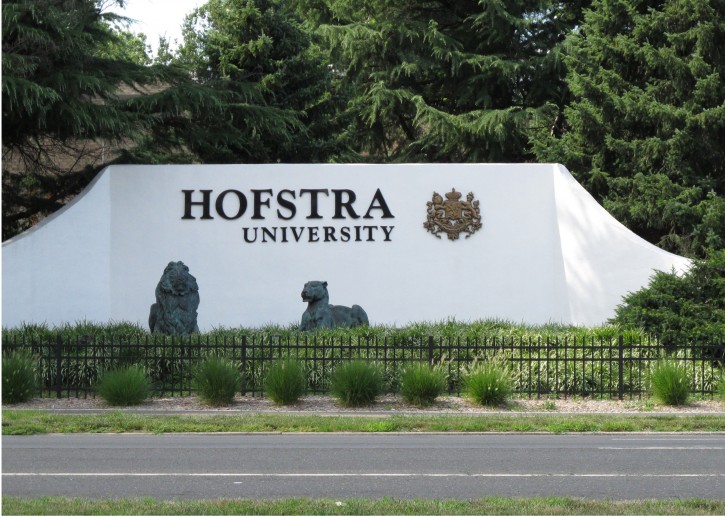
Hempstead, NY – Democracy doesn’t come cheap. Between the logistics of accommodating an estimated 2,500 news reporters and arranging security for VIPs, the cost of hosting a presidential debate now tops $5 million.
But that price tag has not deterred New York’s Hofstra University. The Long Island school is hosting a presidential debate for the third consecutive election cycle after stepping in for Ohio’s Wright State University, which backed out last month amid concerns about security costs.
Hofstra officials say that the debates may be expensive, but that they bring prestige and create a unique experience for students that make it well worth the cost. Some college marketing experts agree.
“Any time a college or university gets national exposure, be it a presidential debate or athletic event, like a basketball run through the NCAA tournament, it helps with name recognition,” said Kent Rinehart, dean of admission at Marist College and board member of the National Association for College Admission Counseling.
Hofstra, 25 miles east of New York City with an enrollment of 10,870, is hosting Donald Trump and Hillary Clinton in their first debate Sept. 26.
That will be followed by one Oct. 9 at Washington University in St. Louis, another familiar setting for debate watchers. It will be that university’s fourth presidential debate since 1992. It also hosted a vice presidential debate in 2008.
“What we have learned over and over is what hosting does is create a life-changing, once-in-a-lifetime experience for our students,” said Steve Givens, associate vice chancellor. “There’s increased visibility, but that’s kind of short-lived. Our students who volunteer just never forget that feeling of being in the middle of history being made.”
Americans watching at home get only a small taste of the logistics.
Outside the debate halls, swarms of reporters and broadcasters interact with politicians and campaign representatives in a huge “spin room.” There are telecommunications setups to arrange, sometimes food tents to set up, shuttle buses to carry people to parking lots. University employees often need to work overtime for the nighttime events.
Hofstra, already an alternate when the call came to pinch-hit for Wright State, says it spent about $5 million to stage the debate in 2012 and expects a slight uptick this time.
The cost includes $1.9 million to the Presidential Commission on Debates to cover staging for the Sept. 26 event. Hofstra alumni and benefactors are picking up the tab.
Nassau County Police said that during the 2012 debate at Hofstra, the department spent an additional $600,000 supplementing campus security.
Enrollment applications climbed by 5,000 after Hofstra’s 2012 debate between Mitt Romney and President Barack Obama, but college officials contend their motivations go beyond attracting students.
“In terms of the advertising, this is not our primary motivation,” said Hofstra President Stuart Rabinowitz. “Having a presidential debate is much more exciting and educational to the students because it’s not just the debate.”
Hofstra invites political and media experts for discussions on campaign issues in the weeks before the actual event, he said. It operates the Peter Kalikow Center for the Study of the American Presidency and has sponsored conferences reviewing the legacy of 11 presidents from Franklin Roosevelt to Bill Clinton.
At the University of Denver, a post-2012 debate survey showed that high school students’ perception of the institution improved and that the debate helped make it an authority in the political arena.
“Our faculty experts that we used leading up to and during the debate also got a great deal of coverage and continue to get called on today,” said spokeswoman Theresa Ahrens.
The University of Nevada, Las Vegas, is hosting the final presidential debate Oct. 19. Longwood University in Farmville, Virginia, will host the vice presidential candidates Oct. 4.
John Santucci was a Hofstra student and worked as a volunteer at the 2008 debate, helping shuttle news executives around campus in the days leading up to the event.
Today, the 27-year-old 2011 graduate is an editorial producer at ABC News and is embedded with the Trump campaign. He urges students interested in politics or the media to volunteer this fall.
“Even if it’s driving somebody around,” he said. “You never know if that person will become your boss someday.”
As reported by Vos Iz Neias
